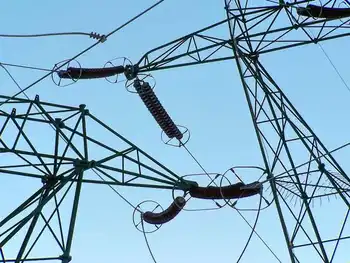Women are “greener” than men
By Electricity Forum
Protective Relay Training - Basic
Our customized live online or in‑person group training can be delivered to your staff at your location.

- Live Online
- 12 hours Instructor-led
- Group Training Available
The research, conducted by Environics Research Group, shows that seven out of 10 “Green Champions” (the most idealistic conservers) are women. Green Champions comprise almost a quarter of the population (23 per cent).
“Pragmatic Conservers” — they take everyday conservation measures but will not make sacrifices — are predominately men. Thirty-one per cent of the population are Pragmatic Conservers.
The year-long research and analysis project found that a total of four categories could be used to describe the attitudes of just about all Ontarians to energy conservation: Green Champions, Pragmatic Conservers, Budget-Driven and Live-for-Today. The research is helping to shape activities planned for Energy Conservation Week, May 25-31, 2008.
The Ontario Power Authority — the organization charged with stimulating and co-ordinating the province’s electricity conservation efforts — is also using the research findings to develop its conservation programs. The OPA has posted the Electric Personality Quiz on its www.everykilowattcounts.com website so that electricity consumers can find out what kind of conserver they are and receive tips on how to move up to the next category.
“The knowledge from this research is incorporated into our conservation programs and has been shared with our local electricity distribution partners,” says Ontario Power Authority Vice President Conservation and Sector Development Paul Shervill. “They will help us reach out more effectively to everyone to conserve — not just during Energy Conservation Week, but over the long term.
Based on the study findings:
· “Green Champions” care deeply about conservation/sustainability for its own sake. These individuals have a high sense of social responsibility, the lowest tolerance for pollution, are optimistic about change, and are willing to spend, do and learn more to make their homes and lifestyles more sustainable.
· “Pragmatic Conservers” will take everyday measures but not make sacrifices; however, they support conservation for its own sake or for the greater good. They’re also typically between ages 26 and 45 and are more affluent. Accounting for 31 per cent of the population, “Pragmatic Conservers” are predominantly men.
· “Budget-Driven” conservers are motivated by short-term financial concerns, and see sustainability as a means to an end; they tend to be under 25 and over 65, have the lowest incomes and educational levels. This is the largest category at 34 per cent of the population and is also typically female.
· The “Live for Today” group is composed of individuals at the opposite ends of the age spectrum; they’re not “anti-conservation” but they aren’t prepared to make an effort because they don’t deem it to be effective.
“What we we’ve learned through this research is valuable for achieving the ‘culture of conservation’ Ontario must cultivate,” says Ontario’s Chief Energy Conservation Officer Peter Love. “Through Energy Conservation Week, we hope to reach out to all Ontarians — whatever type they may fit into — and to motivate them to think about conservation, to believe they can make a difference and to take action,” he adds.
The research, conducted in behalf of the Ontario Power Authority, is based on a cross-province telephone survey of 1,400 Ontario adults conducted for the Ontario Power Authority (OPA) in early 2007. The margin of error for this sample is +/- 2.6 percentage points, 19 times out of 20.
Energy Conservation Week is a province-wide initiative that is being co-ordinated by the Ontario Power Authority, in co-operation with many partners, including the Ministry of Energy, the Independent Electricity System Operator and the Electricity Distributors Association. It combines awareness-building, the dissemination of practical information about energy conservation, and it encourages the implementation of specific measure that will help Ontario better manage its summer peak and build towards a “culture of conservation.”











